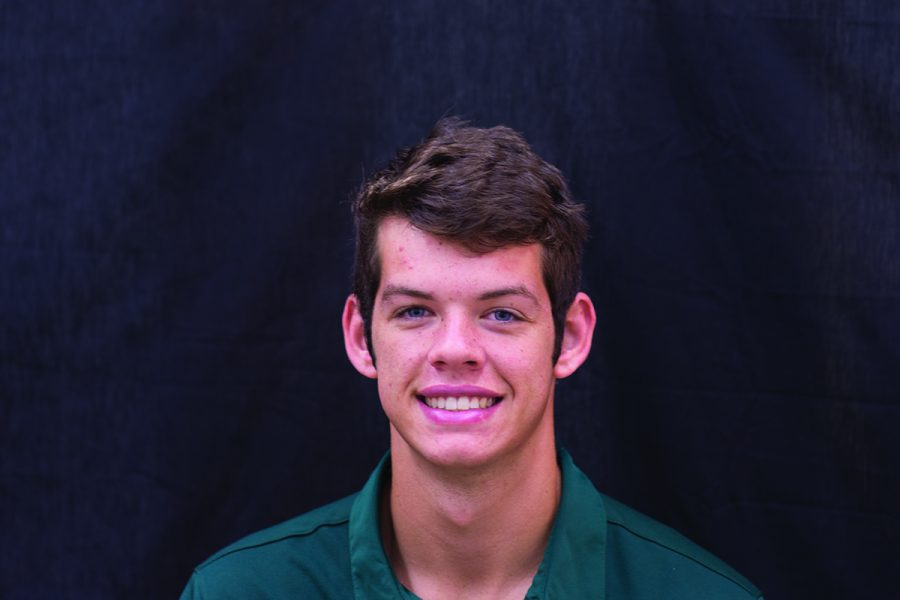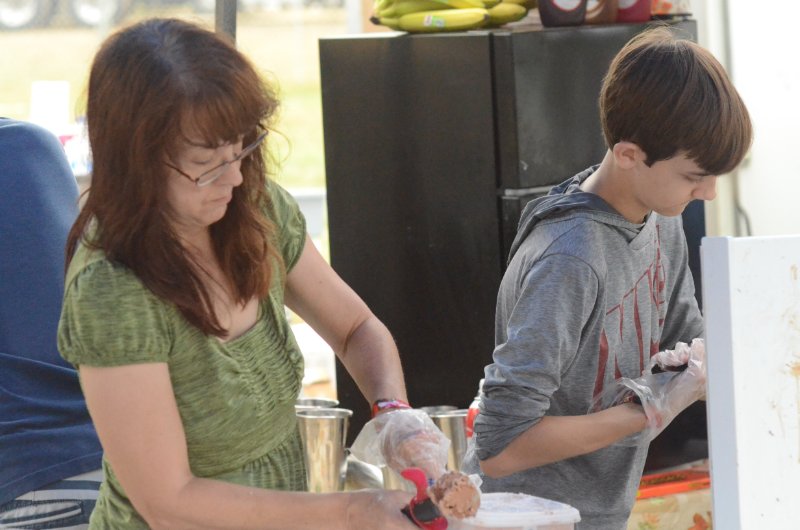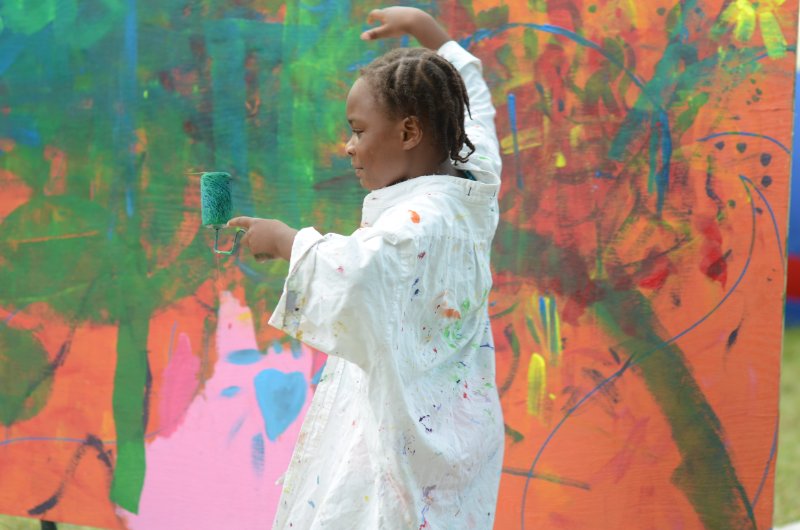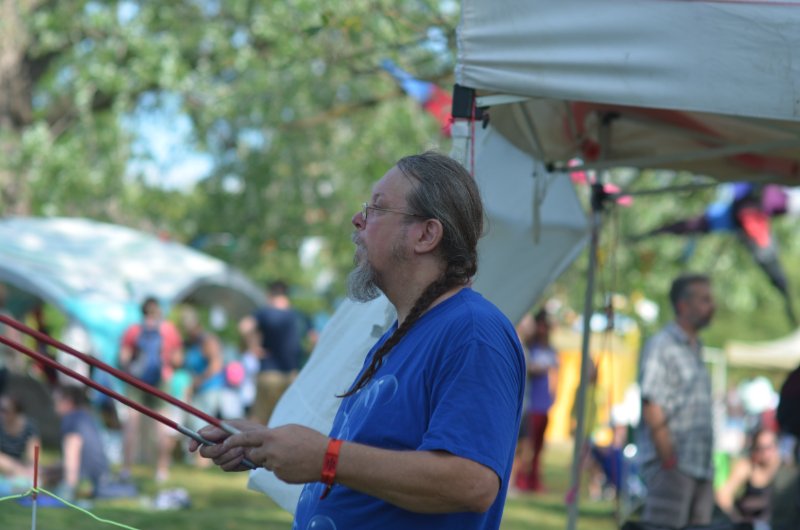
Liu, despite her accomplishments and accolades, is humble, arguing that she “got OK” at the guitar last year and calling her Mandarin “not horrible.”
Others, though, recognize her skill. This year is Liu’s first playing for the show choir combo, but she has already become the liaison between choir director Mike Pierson and the rest of the combo, he said. As the pianist, Liu is the only member of the combo who has the full musical score, as well as the lyrics that the show choir members sing.
“If I’m directing the choir from the front, I can say, ‘Esther, I want to start at “Happiness is in a…”’ or whatever, and she can say, ‘All right, combo, measure 39’ or whatever,” Pierson said. “She’s providing the foundational harmonic structure for the rest of the combo as well.”
The Missouri Fine Arts Academy has also taken note of the gifted junior and offered her a spot at the three-week experience this summer. Liu was originally disappointed when she discovered MOFAA, she said. She thought she’d missed the deadline, but once she found out she had a week left, she filled out her application and sent off an essay.
“I just really like that atmosphere where people are all musicians or are all into the arts, and they really like being creative,” Esther said. MOFAA is comprised of a “whole bunch of fine arts people; they spend those three weeks to learn more about their own discipline and then to connect with other people.”
Liu has been playing piano, her main instrument, for over a decade. Optimally, she aims for 45 minutes of practice a day, but lately has been reaching that goal “less than I should,” just two or three days each week. Though she used to take lessons for violin, she found piano really suited her musical desires, so she eventually dropped violin to focus on piano.
“You can play so many different types of music, and there’s just so many options you can explore,” Liu said. “With violin I was mostly doing classical stuff, so really that technical side. But about piano, I really like how you can improvise or can play different genres.”
Liu is skilled and dedicated, coming to all combo rehearsals with her parts fully prepared, Pierson said, even to her very first practice. But her passion for all types of music has been especially important. The show choirs need her to play genres from “jazz to rock to Broadway,” Pierson said, and she does them all well.
“She’s just open to taking risks and just loves to play. It doesn’t matter what style. She just loves to play. And I think that’s really what’s given her that ability to fit in really quickly,” Pierson said. “And she’s just a nice person; she’s a very calm person and a lot of fun to be around, so I think the rest of the combo has just kind of gravitated to her in one way or another.”
But improvisation and creativity, crucial for musicality, are not avenues that scientific minds typically pursue. On diagrams of the brain’s left and right hemispheres, logical thinking and creativity are usually pitted as opposites. For Liu, though, math and science fit in perfectly with the arts. She can use her analytic abilities from science class to really investigate songs, and her memorization of math differentials help her record musical pieces in her memory. Music allows the “real world problems” and “science … and math applications” to come through. People often complain that they’ll never use “in real life” the equations and theorems they learn in class, Liu said, but their applications are obvious and invaluable in music.
“Through Science Olympiad I learned about sound harmonics and different physics applications with waves and sound traveling through air,” Liu said, “And that really made a lot of sense because on a guitar or any string instrument, … you can play harmonics by pressing your finger on a certain part of the string, and that is directly because the sound wave, when you cut it in half, then it becomes an octave higher.”
This year, Liu plans to return to Capers again, this time with a dancer in tow. Senior Kate Harline will be choreographing and dancing, Liu said, though the two are undecided on the specifics of their act. Harline wanted to “make something really cool” for her senior year Capers performance, she said, so Liu’s musicianship makes her a good partner for the talent show.
Harline said Liu’s personality, however, is what will make the preparations and performance memorable.
“Esther is so talented,” Harline said, “but still super approachable. She can play any instrument and knit. Whether it was sharing puns or knowing glances, she is the reason I survived AP U.S.”




















































































Nicole • Sep 29, 2013 at 8:09 pm
You have made some good points there. I looked on the net for additional
information about the issue and found most individuals will go along with your views
on this web site.
Marissa "chauffeur" Soumokil • Mar 11, 2013 at 1:15 am
My favorite hitch hiker for sure.
Najeebah • Mar 9, 2013 at 6:59 pm
Gotta love Esther. 🙂 Awesome girl.